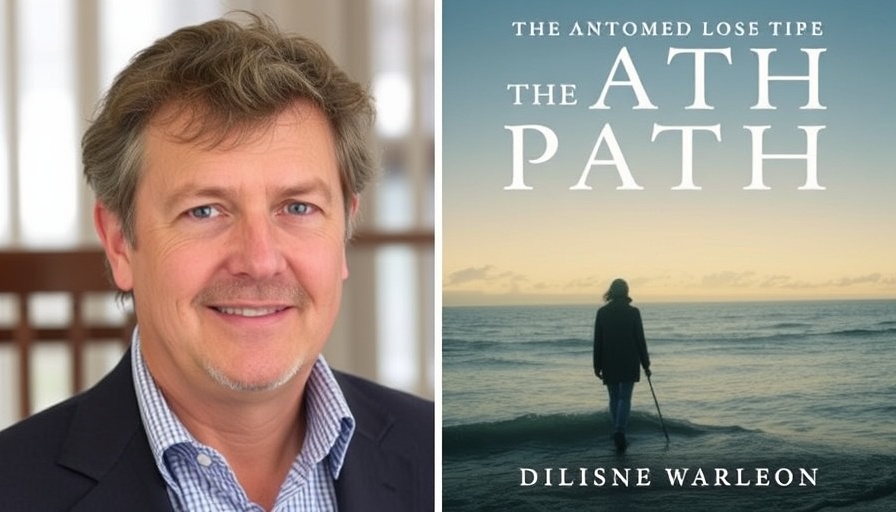
The Heart of the Controversy: Unpacking the Allegations
Raynor Winn, celebrated for her memoir The Salt Path, now finds herself embroiled in controversy as allegations surface challenging the authenticity of her narrative. Following a report by the Observer, claims arose questioning her husband Moth’s illness, asserting that his diagnosis of corticobasal degeneration (CBD) may have been fabricated. This nearly mythical 630-mile journey, which follows her family's descent into homelessness and the resilience they discovered along the way, has become overshadowed by accusations of falsehood. In a heartfelt social media response, Winn described these days as among the hardest of her life, declaring her distress over the insinuations regarding Moth’s health.
What is CBD and Why Does It Matter?
Corticobasal degeneration is a rare neurological disorder that affects movement and cognition. Avoiding dramatization, its symptoms can be subtle and vary considerably in presentation. However, some medical experts mentioned in the Observer's report voiced skepticism about Moth's diagnosis. They noted that individuals diagnosed with CBD often display more acute symptoms, leading to hesitancy in asserting its presence in his case. Learning about such a condition can usually instill a sense of respect and empathy; it’s a reminder of the fragility of health and the complexity of medical understandings.
The Journey: More Than Just a Walk
In The Salt Path, Winn narrates a journey that symbolizes resilience and hope in the face of dire circumstances, depicting their experiences post-homelessness along the Southwest Coast Path in the UK. Winn’s narrative focuses on moments of struggle intertwined with beauty, portraying not just the physical endeavor of walking but also the emotional path they traveled. It invites readers to explore themes of grief, love, and survival, elements that resonate deeply with those seeking inspiring stories amidst their own challenges.
Echoes of Reality: Are Memoirs Always Truth?
Memoirs serve as windows into personal experience, intertwining truth with perspective. However, one might question—how much artistic license can an author take? Winn emphasizes that her memoir encapsulates a specific time frame dominated by despair and hope but is not an exhaustive account of her life. The accusations of misrepresentation can feel deeply disturbing, not only for the author but for readers who connect with narratives that uplift and validate personal experiences. In sharing stories, authors navigate a delicate balance between factual accuracy and the emotional truths of their journeys.
Implications for Readers and Authors
This current controversy magnifies an ongoing dilemma within the literary landscape: the intersection between truth and narrative. For readers, especially those in the digital nomad community seeking inspiring tales that spur sustainable living and travel, these allegations could create a rift between the narrative’s expectancy and its reliability. Moreover, aspiring writers are left to ponder how their stories will be received and scrutinized, potentially influencing their willingness to share vulnerable truths.
Future of the Memoir Genre: What Lies Ahead?
As societal pillars of skepticism grow toward autobiographical accounts, one may wonder what the future holds for the genre. Will it shift towards fictionalizing personal tales? Or will it encourage greater transparency and reliability alongside emotional resonance? Given the ever-changing nature of literature and narrative interpretation in the age of social media and online scrutiny, authors will need to adapt, considering the implications of how they choose to convey their truths.
Take Action: Let Your Voice Be Heard!
In light of this controversy, how should readers respond? Engaging with memoirs like The Salt Path, providing thoughtful feedback through reviews, or supporting authors directly, can help invigorate an open dialogue about truth and representation in personal narratives. Encourage discussion within your community and foster a deeper understanding of authors and their motivations. By doing so, not only do you honor personal stories but also shape the future landscape of memoirs.
 Add Row
Add Row  Add
Add 




Write A Comment